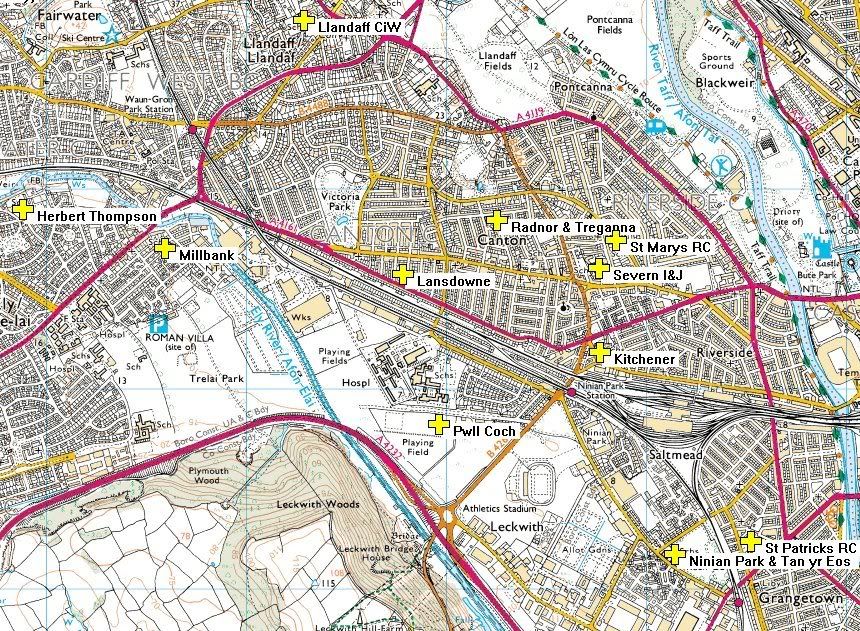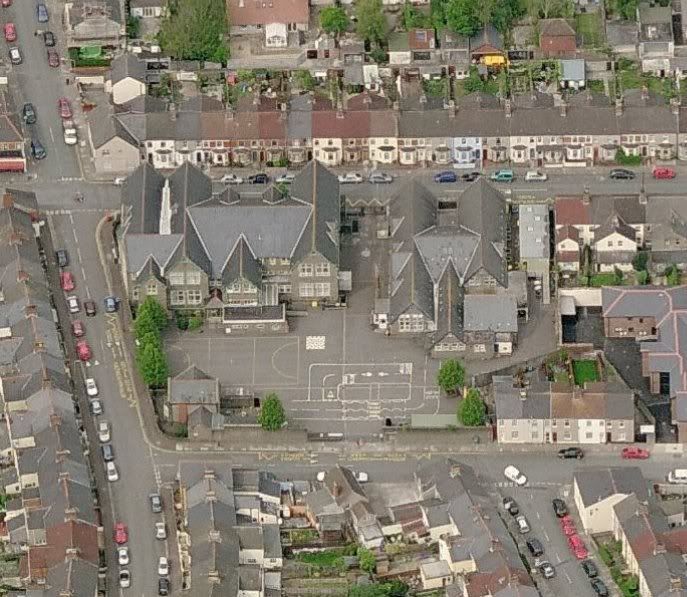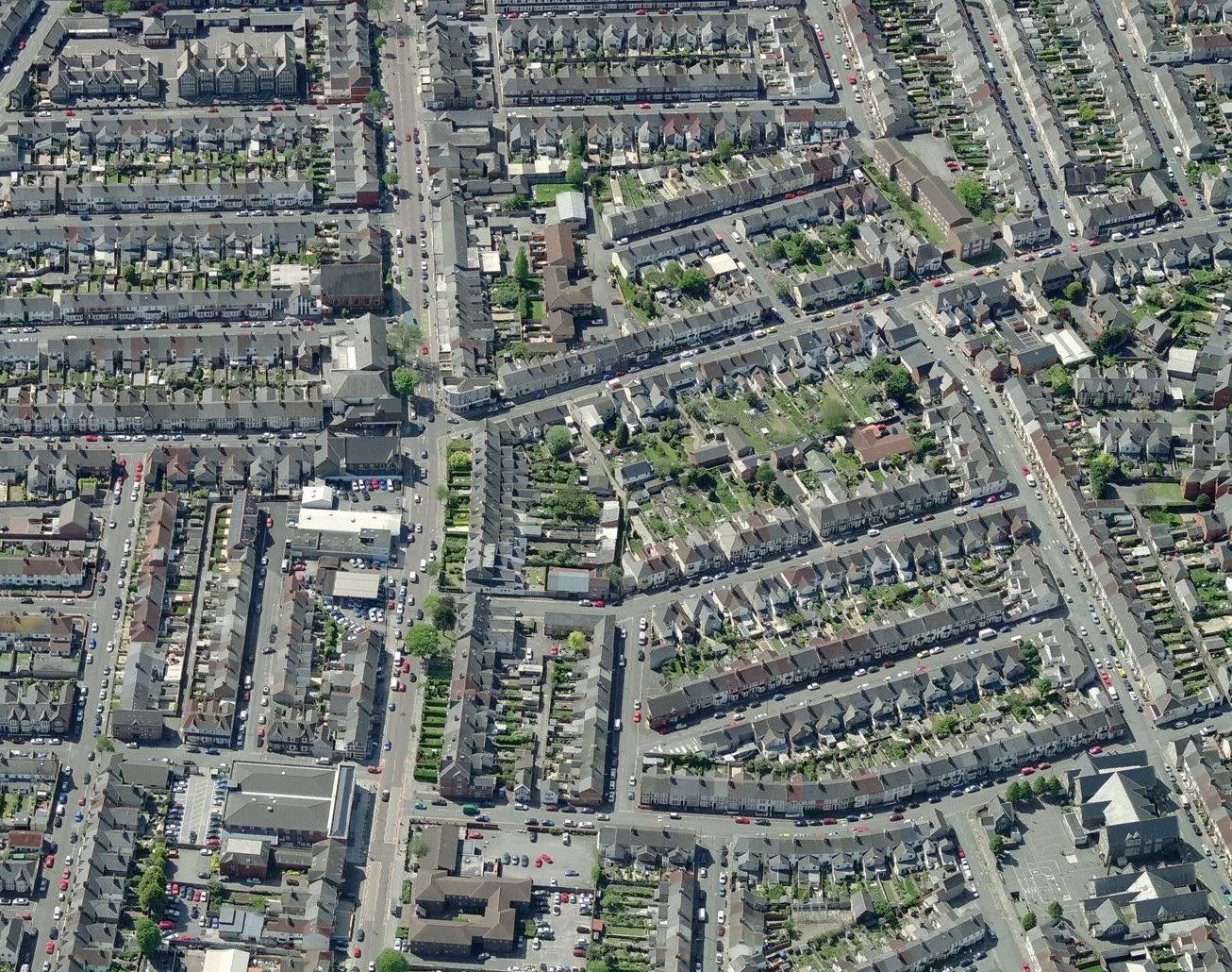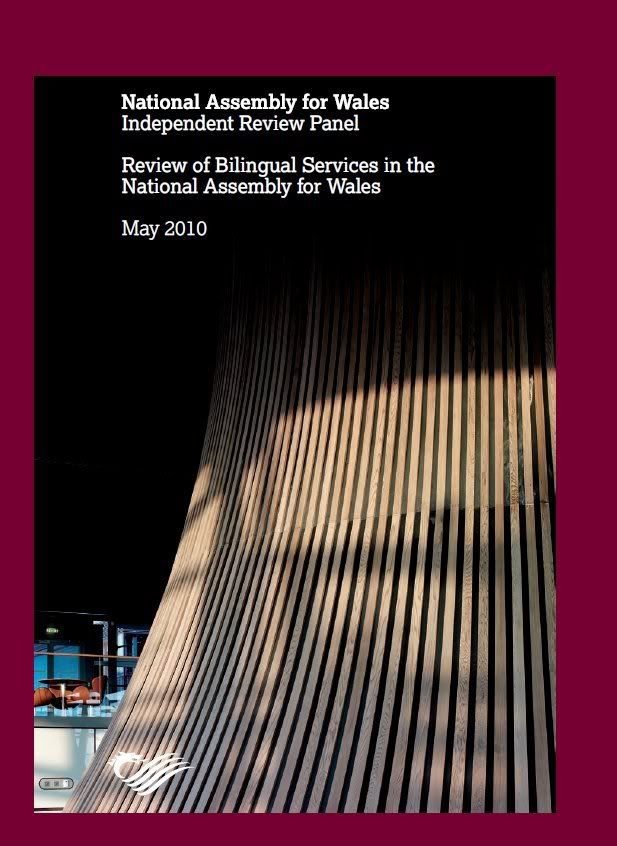Having looked at the facts and figures connected with the Cardiff Schools reorganization programme in Canton in the previous post, I now want to look in detail at the decision letter itself, which is here:
Decision Letter
Statement of Information
I believe that although the decision letter makes a good number of valid points, it also contains a number of fundamental flaws, and that these constitute grounds for reversing the decision, by judicial review if not by agreement beforehand. There are three main issues:
1. The basic reason for the proposal has been misunderstood
The most obvious flaw in the decision is right at the beginning:
The First Minister also considered that, while the standard of provision would improve for the Welsh medium sector, it would not improve for the English medium sector, especially in the short term (up to 6 years) particularly compared with current provision in terms of resources and space.
This is true, but the point is not relevant. The current situation is that WM provision is overcrowded and there is not enough space for those children whose parents want it. In contrast each of the EM schools, and Lansdowne in particular, has a large amount of surplus space. Any redistribution of pupils between schools is by definition going to improve the space standards for those currently in WM education, and reduce the space enjoyed by those in EM education. However this does not put EM pupils at a disadvantage because they currently have more space than they should have, while those in WM education have less space than they should. The aim is to more equitably distribute the available space.
2. Is space required for 575 children?
The most prominent reason given for the negative decision was that up to 575 EM pupils would have to be accommodated on site currently shared by Radnor and Treganna for up to six years, and that the building would not be large enough for this.
The First Minister noted that whilst the total capacity of the buildings at Radnor Road is large enough to provide for 420 pupils in the longer term, the current buildings would need adaptation to accommodate a larger number than that (potentially, according to information provided by the local authority, up to 575) as in the short term a large number of the existing pupils at Lansdowne would be transferred to Radnor.
I find it hard to work out how this figure was calculated, and indeed at one point in the Decision Letter the figure mentioned goes up to 600. There are 320 children at Lansdowne and 217 at Radnor, a total of 537. Roughly a seventh (i.e. 77) of these children will move on to secondary school if the proposal is implemented in September, meaning that a maximum of only 460 would need to make the move. There would of course be a fresh intake, but there is no reason why this shouldn't be smaller than usual.
At present only 205 out of 320 children in Lansdowne, and 138 out of 217 children in Radnor are within the Lansdowne and Radnor catchment areas ... 343 out of 537 or only 64%. This would mean that if the admission number for the enlarged Radnor were reduced to 50 it would be enough to cover all local children, but it would have to accept fewer applications from outside the local area than the two schools have done up to now. This would mean that the maximum number of children at the new EM school would be 510 to begin with, reducing by about 27 each year because the number leaving will be that much greater than the intake.
The capacity of the two schools is 457. So the "problem" is only 53 places—at maximum—and even this would cease to be a problem after two years. Therefore in talking about 575 children and a six year transition period the Decision Letter has exaggerated the problem by a factor of more than two. In my opinion this is sufficient in itself to seek a review of the decision.
-
But there is another factor to take into account. Not all parents of children at Lansdowne will want to transfer their children to the new Radnor. Faced with closure it is highly likely that the parents of at least some of the 32 children from the Kitchener catchment, the 17 from Herbert Thompson, the 14 from Ninian Park and the 30 from other catchments will choose not to go to the new Radnor. Also, for those living in the western side of Lansdowne's catchment area, Millbank or Herbert Thompson may well be closer and more convenient than Radnor. It's hard to put together precise figures because individual parents will balance continuity of education against convenience, but it is entirely possible that the number will be more than 53.
However, even if it isn't, we should bear in mind that Treganna is over capacity by 24. Although this is far from ideal, it illustrates that schools can operate with numbers over their official capacity for a short period. However, if this same number was distributed over a school with an official capacity of 457 instead of 169, it would be much more acceptable than it is for Treganna alone at present ... and of course it would only be temporary.
-
Another factor is that the move does not have to be made in just one stage anyway. Lansdowne has two separate buildings, originally a Junior and Infants block. To begin with, the numbers at the new WM school would be 193 from Treganna and just under 50 from Tan yr Eos. In addition the new admission number would be 60, which would add about 15 more, making a total of about 265.
These 265 should be able to fit in the old Junior block, which would mean that one or two EM year groups could use the old Infants Block for one or two years. Indeed this was proposed by Cardiff:
The First Minister is aware that the local authority has suggested that in order to avoid perceived overcrowding on the Radnor site arising from the presence of up to 600 pupils the transfer of pupils from Lansdowne could be staged and that part of the Lansdowne site could be retained for the use of English medium pupils until such time that the number on roll at Radnor reduces to 420.
The First Minister recognises that many schools operate split site arrangements and that these can work well. He does not view such arrangements as ideal, and believes that it is preferable that they are not created in order to implement a proposal unless it is for a very limited period. The local authority's suggestion could, the First Minister believes, lead to the creation of either a split site school for up to 6 years, or a school site that accommodates substantially more pupils than it should for that length of time.
What has happened is that the FM has repeated his misunderstanding of the figures (and added another 25 for no apparent reason) and concluded that 6 years is too much. However he does accept that this arrangement can work for a more limited period. I have shown that it would not be necessary for longer than two
years at most and would therefore be acceptable under the criteria that the FM said were allowable.
The situation is not dissimilar to Tan yr Eos, which will have acted as an overflow for Treganna for three years. If it's reasonable to have done one as a temporary arrangement, then it must be equally reasonable to do it the other way round.
I would reiterate that if enough parents of children currently at Lansdowne decide to send them to schools other than Radnor, then there should be no need for any temporary split. But if they don't choose to do that, then a split arrangement is one way of handling the transition without going above Radnor's capacity.
3. The size of the Radnor/Treganna site
Several times in the Decision Letter the FM says that the Radnor/Treganna site is large enough for 420 place EM school that Cardiff proposes, for example:
The total capacity of the buildings at Radnor Road is large enough to provide for 420 pupils in the longer term
and
[The FM] has reviewed the local authority's most recent (2009) pupil projections and compared them with the numbers on roll at January 2010, and is satisfied that between them, the remaining English medium schools in Canton, providing 420 places each, would have sufficient capacity to meet the demand for places generated from within Canton itself. The First Minister notes that this would probably mean fewer pupils from outside of Canton would have been able to gain a place at schools in the Canton area than is currently the case, but notes that this was a declared objective of the local authority in bringing forward the proposal and is line with the principle of 'local schools for local children'.
This is a clear acknowledgement that the principle of "four into three", which I detailed in the previous post, works.
However in contradiction of what he acknowledges he also says:
The First Minister was concerned to note that when compared with Building Bulletin guidance, the site at Radnor overall is around 17% smaller than would be recommended for a school of 420 primary aged pupils with a nursery. The outdoor space available is also considerably less than would be expected for a new or refurbished school for this number of pupils. Therefore in terms of access to suitable outdoor and play space, the First Minister believes that the pupils at the expanded Radnor school would be under provided for in that respect, as are the pupils currently attending the 2 schools based on the site.
This is another reason given for refusal that is not relevant, and one which does not even hold up to detailed scrutiny anyway. In the first instance the FM recognizes that such guidance is not statutory, and therefore cannot be a ground for refusal.
This guidance is intended for new and substantially refurbished building projects rather than existing buildings. Many older school buildings do not meet these standards, not just in terms of space, but in terms of disability access, insulation standards and the like. If these guidelines were applied to all school buildings, we would probably need to close half of them and build new ones ... only for them to be inadequate in forty years time as well.
But the more substantial point is that such guidelines cannot be applied as simplistically as the FM has applied them in making his decision. He is only considering numbers of pupils against the overall site area. But this ratio is only a guideline since, for example, a two storey school would have a smaller footprint and therefore could have more play space than a single storey school on a larger site would have. Another very obvious misapplication of the principle is that the difference in the overall size of the Lansdowne and Radnor/Treganna sites is meaningless because the whole of the front strip of land at Lansdowne is taken up with parking for 15 or more vehicles. So this part of the decision is based on a "justification" that doesn't stand up to even the most elementary scrutiny, and as such provides a third reason why the decision can be challenged.
It should also be noted that Cardiff do not agree with the FM's conclusions anyway. Their response to that point is:
The Authority has developed the proposals by reference to the Building Bulletins and is therefore confident that the proposed school of 420 places plus nursery will be suitably provided for as will the needs of the Foundation Phase.
Conclusion
Reading through the Decision Letter it will be clear that the First Minister agrees with the majority of Cardiff's reasoning, and has dismissed most of the points of objection raised in the consultation period. He is generally satisfied that the procedures have been properly followed.
If the minister does not approve a proposal he must do so on reasonable grounds. In order to mount a challenge to reverse a wrong decision it will be necessary to show those points at which the decision was flawed, either because of the misapplication of a principle, or because of demonstrably false assumptions. I have therefore concentrated on the three matters which I believe have directly resulted in a flawed decision.
However all political parties except Labour are of the clear opinion that this is primarily a political decision, and that the reasons given for refusal are simply an attempt to justify that political decision. The political consequences of this decision could be severe. At the very least, it is a sign of bad faith and lack of trust between the partners in the One Wales Coalition, since decisions of this importance should at least have been discussed at the Cabinet table rather than "sprung" on Labour's partners in that coalition without warning. Such bad faith could easily result in Plaid Cymru leaving the One Wales coalition. I therefore suspect that the matter will be resolved at a political rather than judicial level.
-
My personal view is that the decision seems, between the lines, to hold out the suggestion that although Radnor has a larger building with more capacity, the size of the site is seen as the bigger problem; and that therefore to keep Lansdowne as an EM school and to close Radnor to allow Treganna full use of the site they now share with Radnor is a better option.
However that cannot be done without a due process of consultation, and therefore is a non-starter because it can't solve the problem in time. If I was being cynical I would say that even if it is being tacitly "offered" as a solution it might just be in order to delay the process by another few years. This would not be the first time that Labour has adopted the posture of being "for" something ... just as long as it can kick the actual implementation of the policy into the long grass for an indefinite period.
-
I think Cardiff's proposal might well not be the best it could have come up with, just as I think it could have done better with the Whitchurch proposal. But there is a principle at stake: namely that they have been elected, and it is therefore up to them to decide the proposal which they think is the best way of achieving the objective of increasing the number of WM places in response to demand. I think their reasons are a properly considered and reasonable solution to the problem, even though I might have solved it in a different way if it were up to me.
For that reason, I think we should not hold out hopes for a "different" solution, and in particular I think the idea of just building a new school is a cop out. Any problem can be "solved" by throwing money at it, but how does a new school solve the problem of 8,000 surplus spaces in EM schools? The school buildings in question are all in fairly good condition. The point to be grasped is that EM schools must be turned into WM schools in order to meet the ever-increasing parental demand for WM education instead of EM education. If existing WM schools are enlarged or new ones opened, EM schools have to be closed. I don't care if it's Lansdowne or Radnor in this instance, but it has to be one of the four EM schools in Canton. Cardiff has chosen Lansdowne for closure, and the Welsh Government has no good reason to reject that proposal.
Please note that in order to keep the discussion in one place I have disallowed comments in all but the first post on this subject, which is here.









